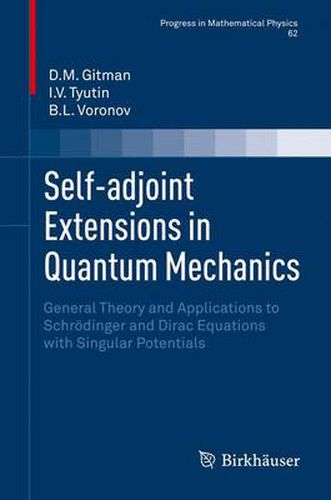Readings Newsletter
Become a Readings Member to make your shopping experience even easier.
Sign in or sign up for free!
You’re not far away from qualifying for FREE standard shipping within Australia
You’ve qualified for FREE standard shipping within Australia
The cart is loading…






This title is printed to order. This book may have been self-published. If so, we cannot guarantee the quality of the content. In the main most books will have gone through the editing process however some may not. We therefore suggest that you be aware of this before ordering this book. If in doubt check either the author or publisher’s details as we are unable to accept any returns unless they are faulty. Please contact us if you have any questions.
Quantization in quantum mechanics deals with the problem of correct defining various classical structures, for example, quantum-mechanical observables such as Hamiltonian, momentum, self-adjoint operators in some Hilbert space and so on. Though there exists a naive treatment, based on experience in finite-dimensional algebra or even infinite-dimensional algebra with bounded operators, it results in paradoxes and inaccuracies. This exposition is devoted to a consistent treatment of such problems, based on appealing to some nontrivial items of functional analysis concerning the theory of linear operators in Hilbert spaces.It begins by considering quantization problems in general, emphasizing the non-triviality of consistent operator construction by presenting paradoxes to the naive treatment. It then builds the necessary mathematical background following it by the theory of self-adjoint extensions. By considering several problems such as the one-dimensional Calogero problem, the Aharonov-Bohm problem, the problem of delta-like potentials and relativistic Coulomb problem it then shows how quantization problems associated with correct definition of observables can be treated consistently for comparatively simple quantum-mechanical systems. In the end, related problems in quantum field theory are briefly introduced.This well organized text is most suitable for students and post graduates interested in deepening their understanding of mathematical problems in quantum mechanics. However, scientists in mathematical and theoretical physics and mathematicians will also find it useful.
$9.00 standard shipping within Australia
FREE standard shipping within Australia for orders over $100.00
Express & International shipping calculated at checkout
This title is printed to order. This book may have been self-published. If so, we cannot guarantee the quality of the content. In the main most books will have gone through the editing process however some may not. We therefore suggest that you be aware of this before ordering this book. If in doubt check either the author or publisher’s details as we are unable to accept any returns unless they are faulty. Please contact us if you have any questions.
Quantization in quantum mechanics deals with the problem of correct defining various classical structures, for example, quantum-mechanical observables such as Hamiltonian, momentum, self-adjoint operators in some Hilbert space and so on. Though there exists a naive treatment, based on experience in finite-dimensional algebra or even infinite-dimensional algebra with bounded operators, it results in paradoxes and inaccuracies. This exposition is devoted to a consistent treatment of such problems, based on appealing to some nontrivial items of functional analysis concerning the theory of linear operators in Hilbert spaces.It begins by considering quantization problems in general, emphasizing the non-triviality of consistent operator construction by presenting paradoxes to the naive treatment. It then builds the necessary mathematical background following it by the theory of self-adjoint extensions. By considering several problems such as the one-dimensional Calogero problem, the Aharonov-Bohm problem, the problem of delta-like potentials and relativistic Coulomb problem it then shows how quantization problems associated with correct definition of observables can be treated consistently for comparatively simple quantum-mechanical systems. In the end, related problems in quantum field theory are briefly introduced.This well organized text is most suitable for students and post graduates interested in deepening their understanding of mathematical problems in quantum mechanics. However, scientists in mathematical and theoretical physics and mathematicians will also find it useful.